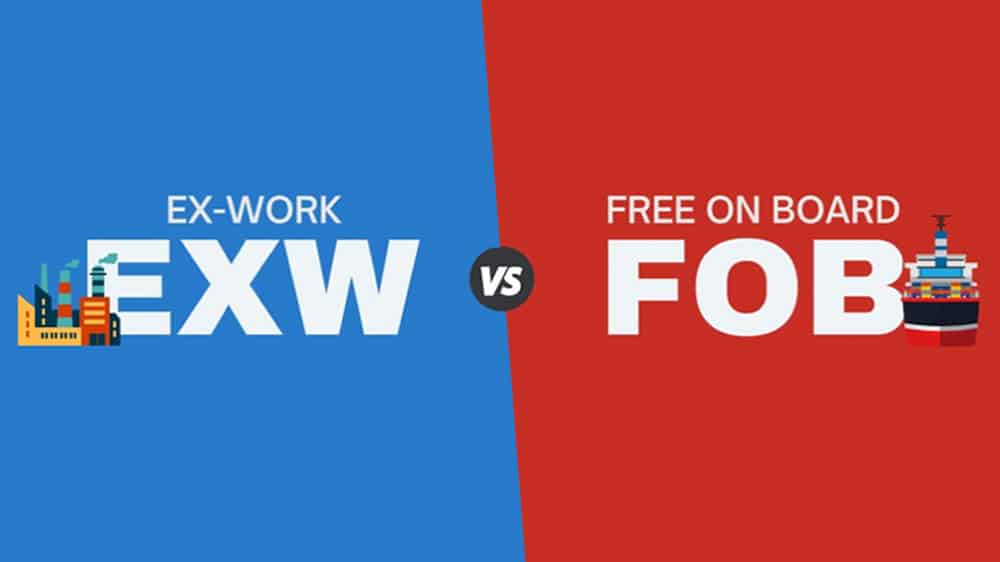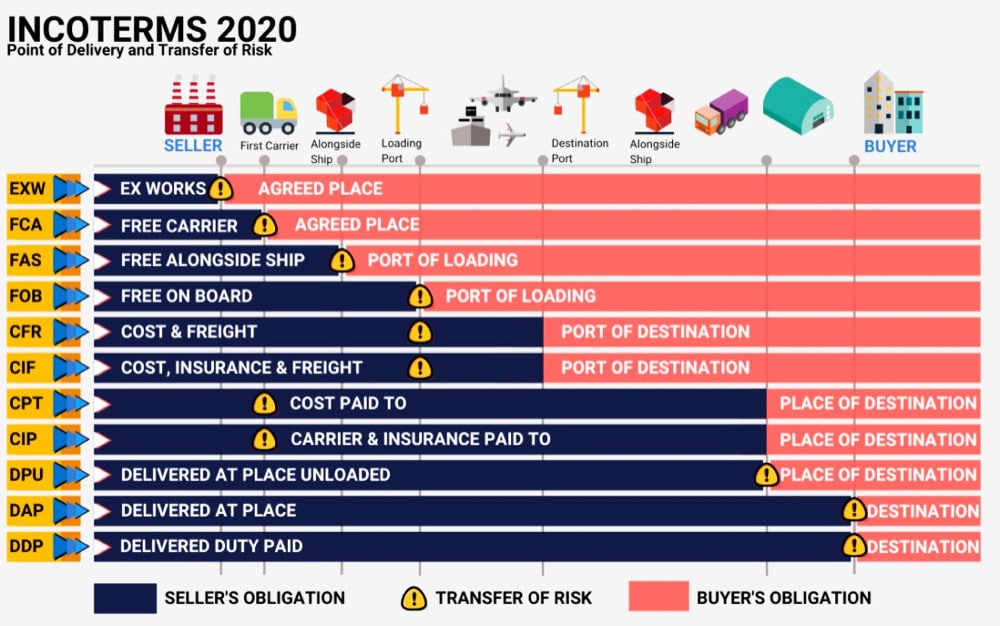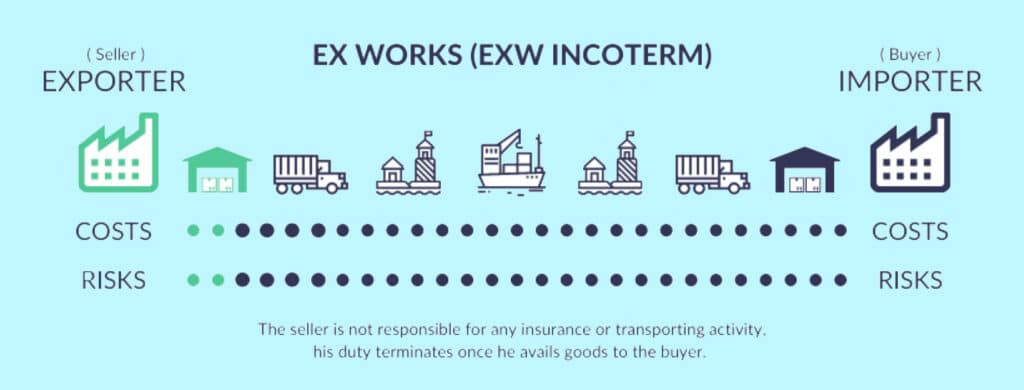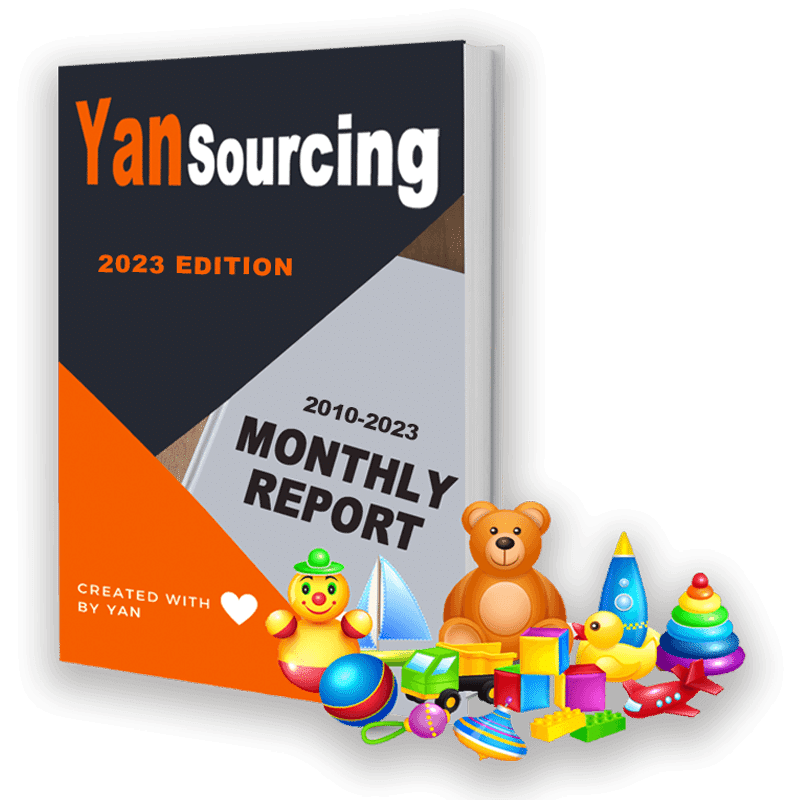
EXW or FOB? Many beginners may be confused about these two Incoterms. What are Incoterms, and what is the difference between EXW and FOB?
In this blog, we will explain everything about EXW Vs. FOB, so that you can make an informed decision on which one is best for your business.
What are Incoterms?
Incoterms stands for “International Commercial Terms” and is used to facilitate international trade.
It is a set of 11 separate rules issued by the International Chamber of Commerce (ICC) that define the responsibilities of sellers and buyers for the sale of goods in international transactions.
Whether you submit a purchase order, pack and label goods for shipment, or prepare a certificate of origin at the port, Incoterms will guide you.
These terms define the various parts of trade and specify which party is responsible for different costs, tasks, and processes.
You may learn more on our blog for Incoterms for details below:
What are Incoterms? | The Complete Guide 2022
Incoterms on Wikipedia
The Incoterms or International Commercial Terms are pre-defined commercial terms published by the International Chamber of Commerce (ICC) relating to international commercial law.

They are widely used in international commercial transactions or procurement processes, and their use is encouraged by trade councils, courts, and international lawyers.
A series of three-letter trade terms related to standard contractual sales practices, the Incoterms rules are intended to communicate the tasks, costs, and risks associated with the global or international transportation and delivery of goods.
Incoterms inform sales contracts defining respective obligations, costs, and risks in delivering goods from the seller to the buyer.
Still, they do not themselves conclude a contract, determine the price payable, currency or credit terms, govern contract law, or define where title to goods transfers.
Incoterms describe who bears the responsibilities, risks, and costs associated with a transaction and when they are transferred from the seller to the buyer.
What is EXW? How does It Work?
EXW, which stands for Ex Works, is an international trade term. The seller delivers the goods to the buyer at the factory or designated location.
Once the buyer picks up the goods, the buyer assumes all responsibilities, including transportation to the destination port.
On the other hand, the seller is not responsible for any aspect of the shipping process but only for ensuring that the goods he sells are available for pickup at his premises.
So, the term represents a minimum obligation for the seller and should not be used when the buyer cannot handle the export process directly or indirectly.
What is FOB? How does It Work?
FOB is short for “Free On Board” or “Freight On Board” and is an international trade term. It requires the seller to be responsible for transporting the goods to the port of departure and paying the freight.
The buyer pays the ocean freight, insurance, unloading charges, and freight from the port of departure to the destination.
So, FOB means that when the goods are loaded on board at the port of departure, the risk has been transferred from the seller to the buyer.
What is the Difference Between EXW and FOB?
EXW and FOB are two different Incoterms that can be used for international shipping. To decide whether EXW or FOB is the most appropriate Incoterms, you first need to know the difference between EXW and FOB.
The table below shows more details about EXW Vs. FOB.
| Allocation of Costs | EXW Terms | FOB Terms |
|---|---|---|
| Export customs procedures | Buyer | Seller |
| Transport to export port/airport | Buyer | Seller |
| Unloading of truck in port | Buyer | Seller |
| Loading goods onto vessel/airplane | Buyer | Seller |
| Transportation to destination port/ airport | Buyer | Buyer |
| Insurance | Buyer | Buyer |
| Unloading at destination port/airport | Buyer | Buyer |
| Loading for local haulage | Buyer | Buyer |
| Transport to final destination | Buyer | Buyer |
| Import customs clearance | Buyer | Buyer |
| Import duties and taxes | Buyer | Buyer |
With EXW, the seller is not responsible for loading the goods into the mode of transportation designated by the buyer. The seller provides the goods at his premises, and the buyer must bear the cost of transportation.
With FOB, the seller must load the goods into the buyer’s mode of transportation at the designated port and may be responsible for the goods throughout the transportation process.
FOB means that the seller retains ownership and responsibility for the goods until they are loaded onto the ship.
FOB is slightly riskier for the seller than EXW because they are responsible for certain aspects of the goods.
Under EXW rules, the buyer will be responsible for picking up the goods, loading them, and bringing them to port if needed. The seller is not responsible for helping load or transport the goods.
In China, the concepts of FOB and EXW indicate who will remain responsible for the tax refund. If you buy FOB, the tax will be refunded to the supplier. Conversely, the tax will be given to you when it is EXW.
EXW Pros and Cons
EXW is the most straightforward and most beneficial for the seller. The advantage to the seller is that they bear the minimum responsibility and expense, only that the goods are delivered to the buyer at their premises.
While this may seem most advantageous to the seller, there also has an advantage for the buyer.
Since the buyer assumes responsibility for the shipment, they have better control of the process to ensure the safe delivery of the goods.

For the buyer
Pros
Some buyers prefer to use the EXW because they want to have complete control over the shipment and keep communication with the seller to a minimum.
When the buyer organizes the cargo, they can contact the freight company without going through the seller.
If you are an experienced importer, you can negotiate with your carrier or freight forwarder to get the best price and shipping terms that meet your logistical needs.
Cons
The main disadvantage of EXW for the buyer is related to customs clearance. Under EXW terms, the seller must facilitate the documentation for export customs clearance.
If the seller provides incorrect or incomplete information, the buyer will be responsible for additional costs and delays and even for the cost of export customs inspections.
For sellers
Pros
The advantages of EXW for the seller are apparent, which include minimum responsibilities and costs, only that the goods are delivered to the buyer at the location of his choice (factory or warehouse).
Sellers can concentrate their time and efforts on producing more goods, allowing them to increase their profitability. They can focus on production without worrying about knowing the cost of transportation.
Cons
Even though the risk is low, EXW may not be the most competitive option for sellers.
If you are an exporter who chooses only EXW transactions, the buyer may choose another supplier with a more attractive and straightforward offer.
In China, choosing EXW means no tax refund for the seller, which means no additional taxes are received.
FOB Pros and Cons
FOB is welcome for buyers and sellers because both can control the goods. However, buyers usually have more control over logistics and transportation costs.
In addition, it helps them save costs and choose the shipping method they are satisfied with.

For the buyer
Pros
FOB allows the buyer can choose his own freight forwarder instead of relying on the supplier for some or all of the transportation.
As the buyer, you can complete control over the shipping company, including its route and its time for the goods to reach your port.
If something goes wrong, you have a point of contact within the shipping company to solve the problem. Since you paid for the shipment, you have legal recourse to resolve any errors.
Cons
FOB has a limited choice of suppliers compared to EXW. Most factories can make a good product and offer you an excellent price, but they don’t have the facilities and capabilities to conduct their trading procedures.
Sometimes, they do not have export licenses, so they cannot accept FOB terms.
The unit price of goods offered under FOB terms is higher than EXW. However, this does not necessarily mean that the total cost will be higher, as this price includes some transportation costs.
For sellers
Pros
FOB is also advantageous for the seller because their liability (both risk and cost) is finished once they load the goods onto the ship.
They are relieved of all responsibility for the goods, and the seller can mark the order as “complete” without worrying about any additional costs or problems.
In China, the seller choosing FOB means they will enter into a tax refund process, which means they will receive additional taxes.
Cons
FOB requires the seller to be responsible for shipping the goods to the port of departure and paying the freight. During this time, the seller will be responsible for any problems, such as damaged goods.
Which is Better, EXW Vs. FOB?
It depends on whether you are a buyer or a seller. For the buyer, EXW is usually cheaper than FOB because FOB requires the seller to bear the costs of transportation, handling, and customs clearance.
However, FOB is generally riskier for the seller because the seller is responsible for the goods until they reach the buyer’s designated port of departure.
To decide which Incoterms is better, you need to know its pros and cons in your specific case.
Calculate the total cost of transportation, such as the cost of the goods when they arrive at your door. Also, consider the cost of transportation, insurance coverage, and taxes.
Evaluate whether all these costs should be calculated regarding your goods or if some items may not be calculated per other agreed Incoterms.
Compare the costs of the same goods under EXW or FOB terms and choose the one that works best for you.
EXW Vs. FOB: FAQ
1. What is the purpose of Incoterms?
The purpose of Incoterms is to define three aspects of international trade precisely:
- The allocation of logistics costs between the seller and the buyer.
- The risks transfer of cargo transportation.
- The documentation and customs formalities are required for export and import operations.
2. What are the 11 Incoterms of 2020 version?
The following is a summary of the 11 Incoterms provided by the ICC.
For any mode of transport:
- ExWorks (EXW)
- Free Carrier (FCA)
- Carriage Paid To (CPT)
- Carriage & Insurance Paid To (CIP)
- Delivered at Place Unloaded (DPU)
- Delivered at Place (DAP)
- Delivered Duty Paid (DDP)
For ocean and inland waterway transport:
- Free Alongside Ship (FAS)
- Free on Board (FOB)
- Cost & Freight (CFR)
- Cost, Insurance & Freight (CIF)
3. What does EXW factory mean?
EXW factory means that the seller will provide the goods for the buyer to pick up at the factory.
The seller is not required to load the goods onto the truck at the factory, and the buyer bears all next transportation costs and risks.
4. What is the cost of FOB?
The buyer must pay for the goods before they are loaded on the ship, and he always pays for the sea freight.
FOB pricing can be complex, depending on the type of goods and other logistical considerations, but the buyer should expect it.
5. What do EXW and FOB stand for?
EXW stands for “Ex Works”, which means that the goods are delivered at the factory’s premises and paid for by the buyer.
FOB stands for “Free On Board”, which means that once the goods are loaded on board, the seller transfers responsibility for the goods to the buyer.
EXW Vs. FOB: Conclusion
You always want your goods to be delivered as safely and quickly as possible when shipping. FOB and EXW are probably the most important terms you need to learn whether you are an importer or exporter.
If you have any other questions about FOB Vs. EXW, please leave a comment below.
I am Yan, the founder of Yansourcing, the best sourcing agent in China, who can quickly and safely help you buy and import from China. If you need help sourcing from China, please do not hesitate to contact us.


